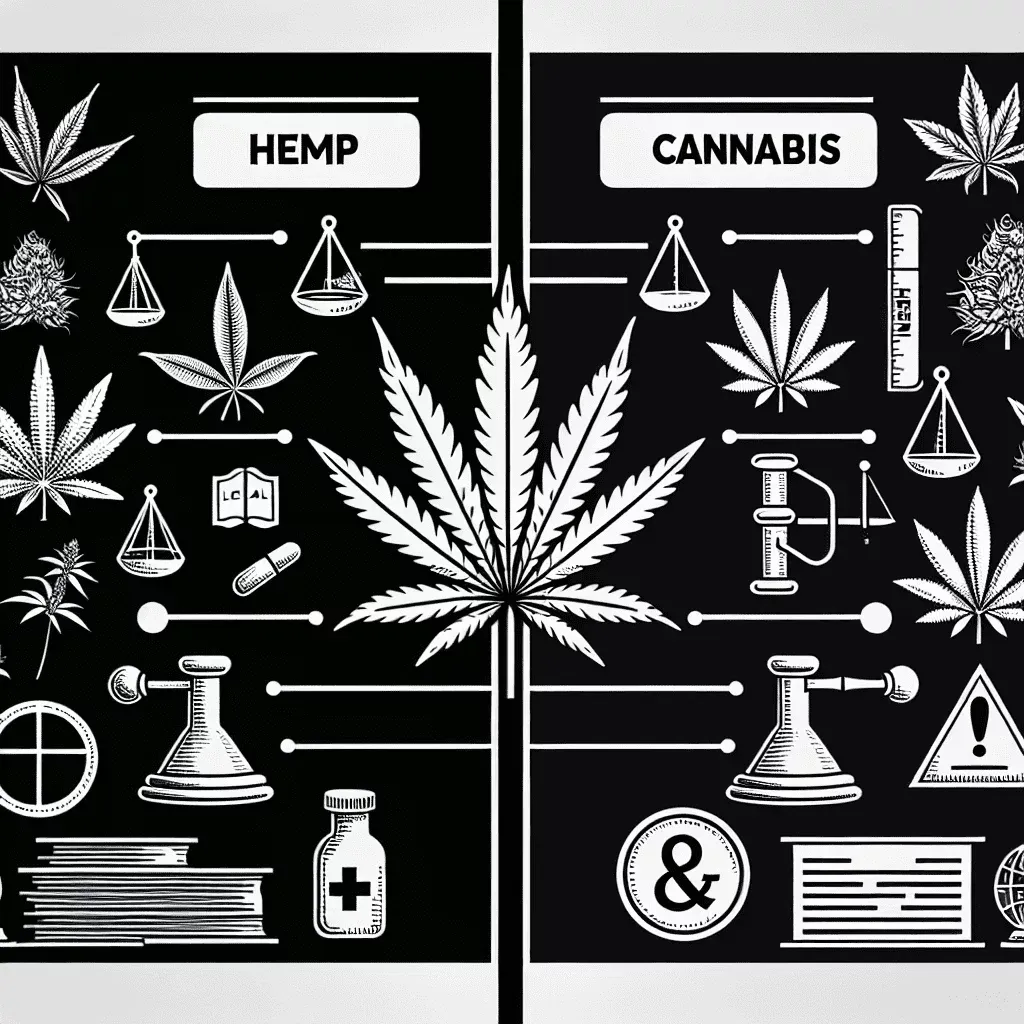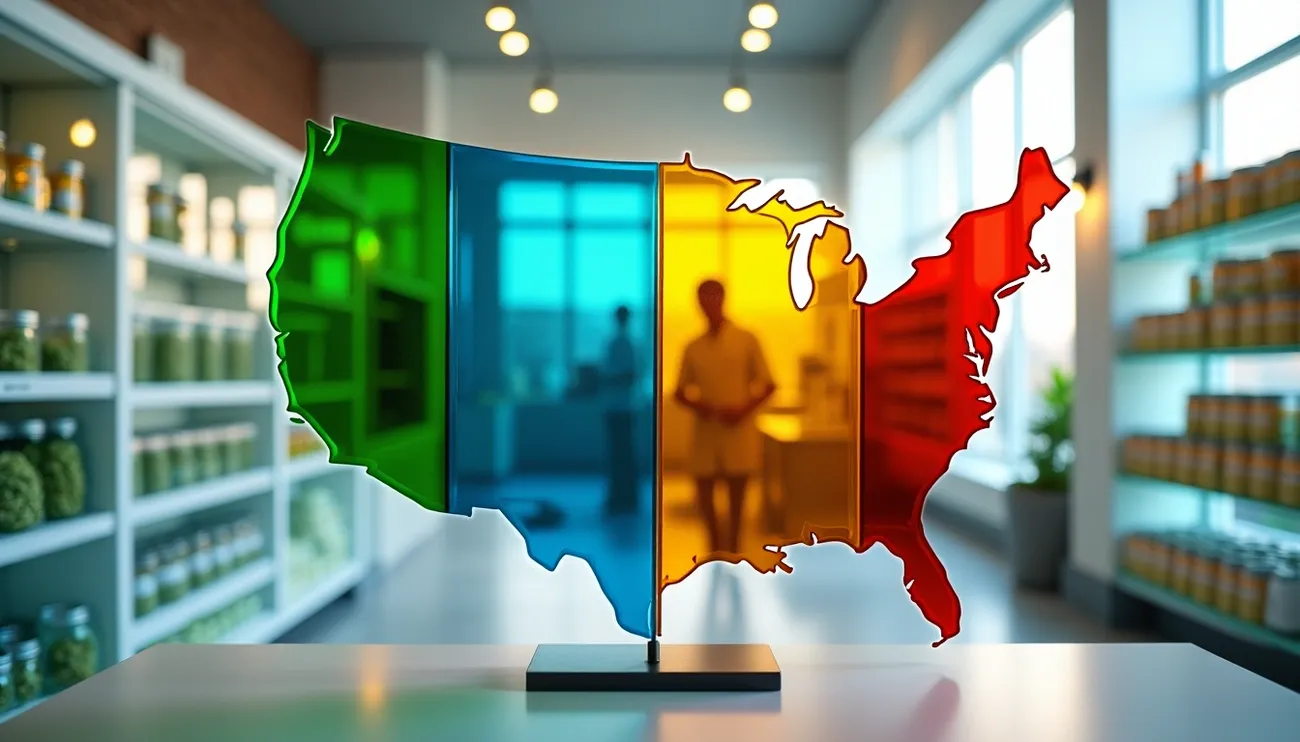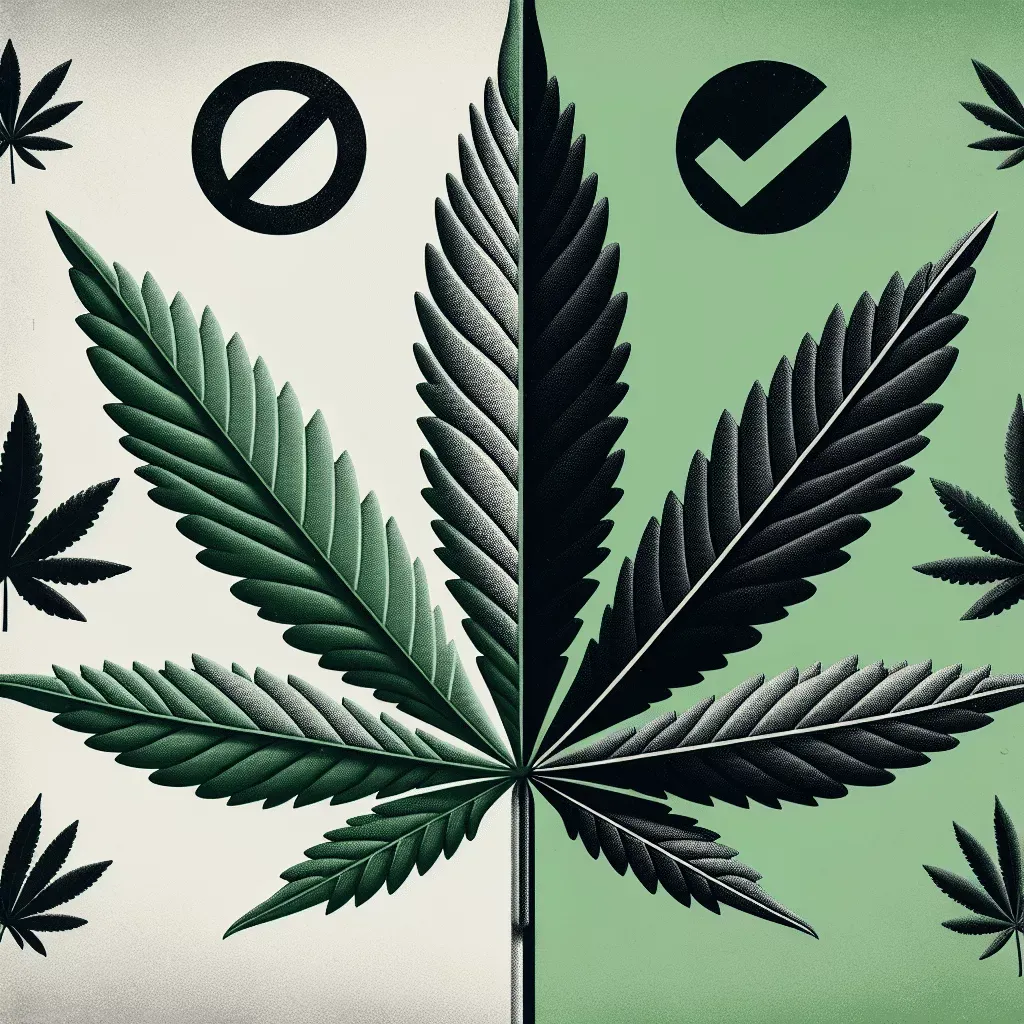Hemp Laws vs. Cannabis Laws: Understanding the Key Differences
As the conversation around cannabis and hemp continues to grow, it becomes increasingly vital to differentiate between the two. Despite their similarities, the legal frameworks governing hemp and cannabis are distinct, causing confusion for consumers, businesses, and policymakers alike. This article will delve into the depths of hemp laws versus cannabis laws, illuminating their key differences, exploring their implications, and offering practical insights for understanding this complex landscape.
What Are Hemp and Cannabis?
At their core, hemp and cannabis both come from the Cannabis sativa plant. However, the distinction is primarily based on the levels of tetrahydrocannabinol (THC), the psychoactive compound responsible for the "high" associated with marijuana use.
Hemp is defined as cannabis with a THC concentration of 0.3% or lower. This low THC content means that hemp is non-intoxicating, making it suitable for a variety of applications, including textiles, biofuels, and dietary supplements.
On the other hand, cannabis—or more commonly referred to as marijuana—contains more than 0.3% THC, leading to its use for recreational and medicinal purposes. In recent years, as legalization initiatives have gained momentum across many regions, the legal status of cannabis has evolved significantly.
The Legal Landscape of Hemp
The legal status of hemp saw a watershed moment in the United States with the passing of the 2018 Farm Bill. This legislation legalized hemp cultivation and removed it from the Controlled Substances Act, allowing states to regulate its production and use. This change opened the floodgates for a burgeoning hemp industry, particularly in areas such as CBD (cannabidiol) oil, which has gained immense popularity for its purported health benefits.
The 2018 Farm Bill set out a framework for cultivating hemp, requiring states to submit plans for regulation to the federal government. These plans must include provisions for testing THC levels, licensing growers, and ensuring compliance with USDA guidelines. The impact has been profound; according to a report by the Brightfield Group, the market for hemp-derived CBD products alone could reach $24 billion by 2023.
The Legal Landscape of Cannabis
In contrast, the legality of cannabis remains a patchwork of regulations, primarily driven by state policy rather than federal law. Although the 2018 Farm Bill legalized hemp, cannabis still remains classified as a Schedule I substance under the Controlled Substances Act. This classification indicates a high potential for abuse and no accepted medical use—though many states have implemented their own programs allowing for medical and recreational use.
As of 2023, over 38 states have legalized medical cannabis, and 21 states allow recreational use. This has led to a booming market, with estimates indicating a legal cannabis industry worth over $41 billion by the end of 2025. However, the lack of cohesive federal law often leads to conflicts, such as banking restrictions for cannabis businesses and varying tax implications.
Benefits and Risks
Both hemp and cannabis offer unique benefits and face distinct risks:
Benefits of Hemp
-
Sustainability: Hemp is often hailed as a sustainable crop due to its low resource requirements compared to traditional crops. It’s faster-growing and can enrich soil health through its deep root systems.
-
Versatility: From textiles to biodegradable plastics and construction materials, hemp’s uses are manifold. Consumables derived from hemp, including CBD oil, have made waves for their potential health benefits.
- Economic Growth: The hemp industry provides job creation opportunities and can stimulate local economies. Farmers are increasingly diversifying their crops, adding hemp to their rotations.
Risks of Hemp
-
Market Oversaturation: With the rapid rise in hemp farming, there’s a risk of market saturation leading to plummeting prices, adversely affecting small farmers and startups.
- Regulatory Confusion: Farmers may face challenges in understanding state and federal guidelines, particularly regarding THC testing and certification.
Benefits of Cannabis
-
Medical Benefits: Cannabis has been shown to alleviate symptoms for various ailments, such as chronic pain, epilepsy, and anxiety disorders, leading to its widespread acceptance in medical settings.
-
Tax Revenue: States that have legalized cannabis often see significant tax revenues, which can be funneled into healthcare, education, and infrastructure.
- Social Justice: The move towards legalization has opened dialogue about social justice, correcting past injustices wrought by stringent drug laws.
Risks of Cannabis
-
Legal Complications: Variances between state and federal laws create confusion and potential legal issues for businesses and consumers.
- Health Risks: While cannabis can provide relief for many, it’s not without its risks. Issues related to dependence and negative mental health effects have been documented, warranting responsible use.
Navigating the Legal Terrain
For consumers and entrepreneurs alike, understanding the legal landscape is crucial. Here are some practical tips:
-
Stay Informed: Laws governing hemp and cannabis can change rapidly, so staying updated through reliable resources like the National Conference of State Legislatures (NCSL) is vital.
-
Consult Professionals: If you’re considering starting a business related to hemp or cannabis, working with a legal expert in cannabis law is advisable to navigate the complex regulations.
-
Understand Your State’s Laws: Since the legality of cannabis and hemp varies widely from state to state, knowing the specifics can help avoid legal pitfalls.
- Focus on Quality: Whether you’re purchasing hemp or cannabis products, prioritizing quality and compliance can help ensure safety and efficacy. Check for third-party lab results for hemp-derived products.
Conclusion
In summary, the legal frameworks for hemp and cannabis differ substantially. Hemp has transitioned to a largely legal status, governed by the 2018 Farm Bill, while cannabis remains mired in complex regulations at both state and federal levels. As both industries continue to evolve, understanding the nuances between hemp laws and cannabis laws is essential for informed decision-making, whether you’re a consumer, entrepreneur, or policymaker.
As you continue your journey towards understanding hemp and cannabis, consider exploring additional resources on this topic. Whether you wish to share your thoughts or ask questions, I encourage you to leave a comment below. Together, we can navigate the fascinating world of hemp and cannabis law!
FAQ: Hemp Laws vs Cannabis Laws
1. What is the primary legal difference between hemp and cannabis?
Hemp is legally defined as cannabis with less than 0.3% THC, while cannabis (marijuana) contains higher levels of THC and is often subject to stricter regulations.
2. Are hemp-derived products legal everywhere?
Yes, hemp-derived products, including CBD, are legal federally in the U.S. as long as they contain less than 0.3% THC, but states may have their own regulations.
3. Can I grow hemp in my state?
Growing hemp is legal in many states, but you must adhere to state-specific regulations and obtain necessary permits or licenses.
4. Do cannabis laws vary by state?
Yes, cannabis laws vary significantly by state, with some states fully legalizing it for recreational and medical use, while others maintain strict prohibitions.
5. Is CBD from hemp the same as CBD from cannabis?
Chemically, CBD from both hemp and cannabis is the same, but the legal status, availability, and THC content may differ based on the source.
Share this content:



